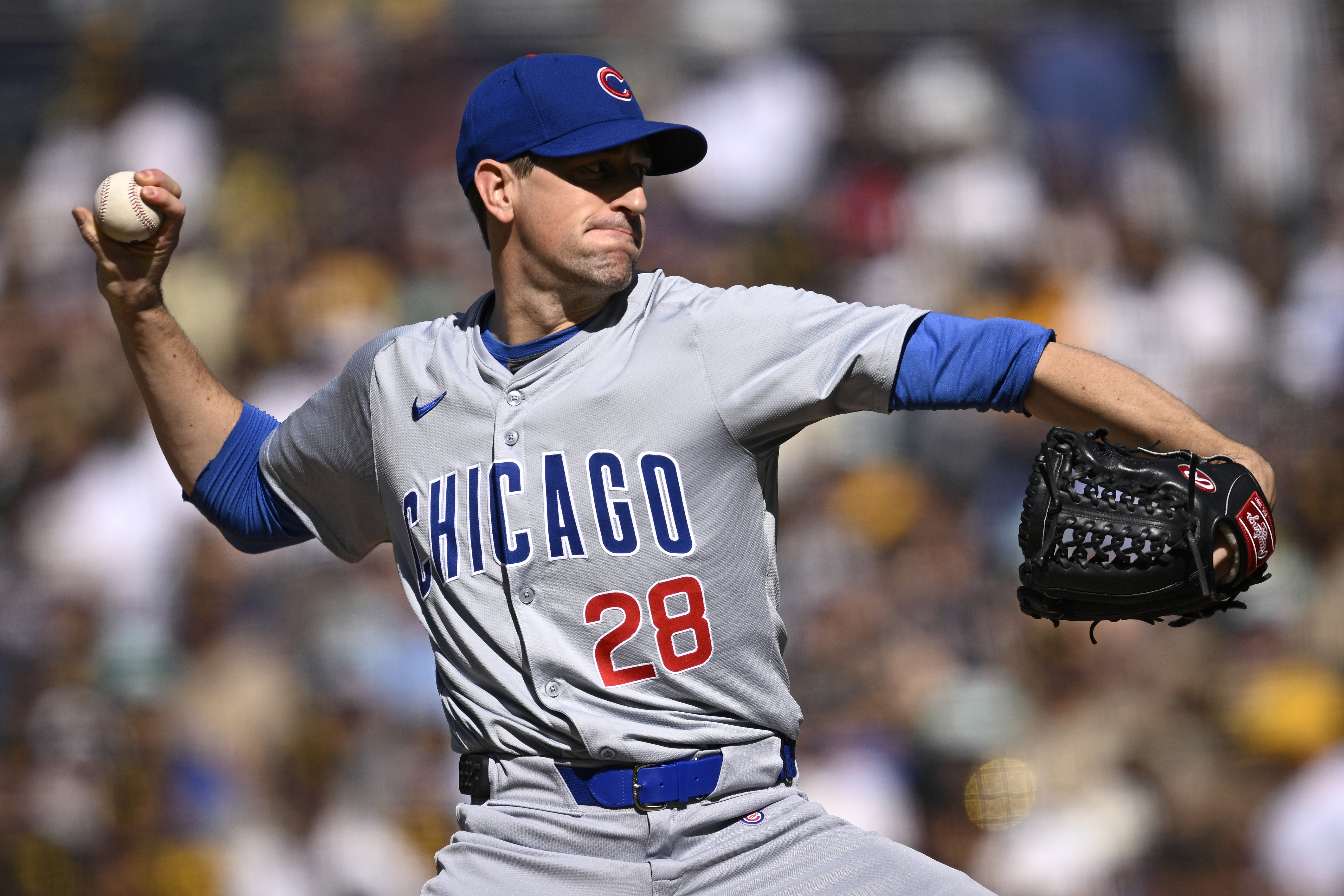MESA, Ariz. - Wade Davis doesn't listen to Beethoven before games anymore.
Not because his musical tastes have changed, but because he's one of the few baseball players who has moved away from rituals as he's grown in his career.
He used to listen to Beethoven as a way to chill out before pitching after coaches told him he needed to slow down and stop getting so amped up.
Now in a role as a closer, he doesn't do anything before games because he never knows for sure when he'll pitch.
"I try to stay away from rituals that I might be relying on," Davis said. "In the bullpen, you don't have as much time. There's that big gap of time where you're not going to be able to have that type of safety net.
"So I stopped doing that in general. I used to rely on, 'Oh, I'm listening to this music to get me in the right mindset.' I should already be in the right mindset.
"The preparation should be the ritual. Everything you've done the whole season, the winter, whatever gets you there."
MLB
In a game often dictated by superstitions and tradition, Davis has transformed into one of the best pitchers in the league — regardless of role — by unconventional means.
Among pitchers who have tossed at least 20 innings since the start of the 2014 season, Davis leads Major League Baseball in ERA (1.18), ahead of guys like Zach Britton, Aroldis Chapman, Andrew Miller and Clayton Kershaw.
Not bad for a guy who struggled with inconsistency as a starting pitcher and posted a 4.26 ERA through the first five seasons of his career.
So how did he do it?
For starters, he just stopped giving a damn.
Like when he could record only one out in his Cubs debut Sunday while giving up three runs on three hits and a walk against the Texas Rangers.
No matter.
When manager Joe Maddon went out to retrieve Davis from the mound, the new Cubs closer was smiling.
"[I've stopped] caring about a lot of things," Davis said. "For example, that game [Sunday]. If I had a bad spring training outing then, people asking me questions like, 'What happened out there?' and I'm thinking there's something wrong, I should've done better. Instead of having the mindset of what it actually is. It is a training month, training for the season.
"So I don't worry about little things anymore like that. Just trying to move it on to the next day and that type of stuff."
Clearly that mindset is serving him well.
Davis moved to the Kansas City bullpen in 2014 after struggling as a starter in his first year with the Royals (5.32 ERA) and wound up posting ridiculous numbers: 0.97 ERA, 0.82 WHIP, 12.1 K/9 and only 3 homers allowed. He actually went all of 2014 (72 innings) without surrendering a longball.
He also allowed only one run and 19 baserunners across 25 postseason innings as he formed a dynamic back end of the bullpen (along with Kelvin Herrera and Greg Holland) that lifted the Royals to back-to-back World Series appearances, including a 2015 title.
It's not like Davis had a poor season last year (1.87 ERA, 1.13 WHIP, 0 HRs allowed), but 2016 was marred by a forearm issue that persisted throughout the season, limiting him to just 45 games and 43.1 innings.
The Cubs took a chance on Davis this winter, sending Jorge Soler and his enormous potential to Kansas City for the 31-year-old right-hander's final season before free agency.
It's also a reunion for Davis and Maddon, who worked together for four years with the Tampa Bay Rays from 2009-12 before Davis was sent to Kansas City in a trade that involved James Shields, Jake Odorizzi, Wil Myers and Davis' now-teammate Mike Montgomery.
Despite recording 1,376 outs for Maddon's Rays, Davis can still surprise his manager.
In Davis' appearance Sunday, Maddon was surprised to see the new closer throwing so hard.
"I'm used to seeing him throw 86, 87, 88 mph the first time he pitches," Maddon said. "He was at 92-94 mph and he hit 95 mph. That's quite a leap for me watching him."
But that was just the first step in Davis' 2017 season, a year in which his only goals are to stay healthy and help the Cubs win as much as possible.
He's not content with the elite level he's reached in his career.
When asked what lessons he can pass along to young Cubs relievers like Carl Edwards Jr., Davis balked at the notion that he is a teacher and not still a pupil:
"Maybe I'll learn something from them."


